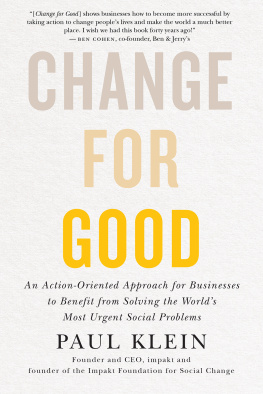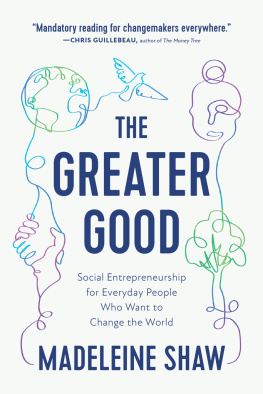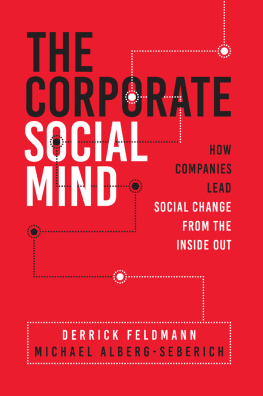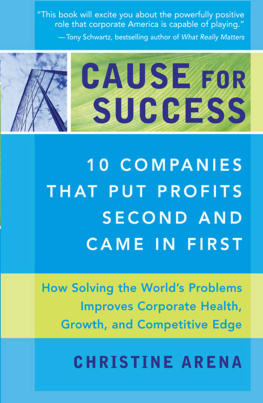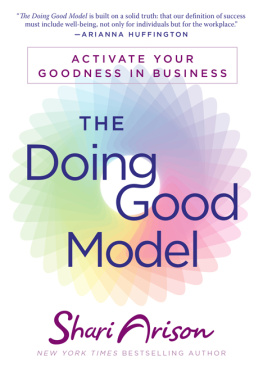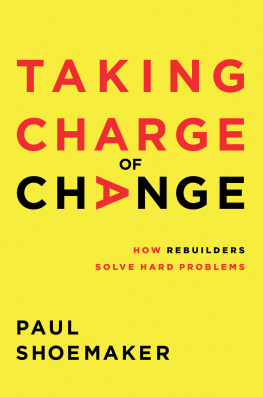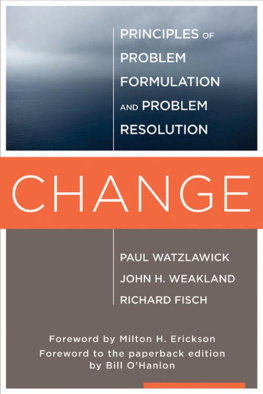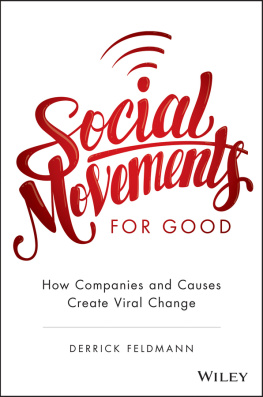Paul Klein - Change for Good: An Action-Oriented Approach for Businesses to Benefit from Solving the Worlds Most Urgent Social Problems
Here you can read online Paul Klein - Change for Good: An Action-Oriented Approach for Businesses to Benefit from Solving the Worlds Most Urgent Social Problems full text of the book (entire story) in english for free. Download pdf and epub, get meaning, cover and reviews about this ebook. year: 2022, publisher: ECW Press, genre: Business. Description of the work, (preface) as well as reviews are available. Best literature library LitArk.com created for fans of good reading and offers a wide selection of genres:
Romance novel
Science fiction
Adventure
Detective
Science
History
Home and family
Prose
Art
Politics
Computer
Non-fiction
Religion
Business
Children
Humor
Choose a favorite category and find really read worthwhile books. Enjoy immersion in the world of imagination, feel the emotions of the characters or learn something new for yourself, make an fascinating discovery.
- Book:Change for Good: An Action-Oriented Approach for Businesses to Benefit from Solving the Worlds Most Urgent Social Problems
- Author:
- Publisher:ECW Press
- Genre:
- Year:2022
- Rating:5 / 5
- Favourites:Add to favourites
- Your mark:
Change for Good: An Action-Oriented Approach for Businesses to Benefit from Solving the Worlds Most Urgent Social Problems: summary, description and annotation
We offer to read an annotation, description, summary or preface (depends on what the author of the book "Change for Good: An Action-Oriented Approach for Businesses to Benefit from Solving the Worlds Most Urgent Social Problems" wrote himself). If you haven't found the necessary information about the book — write in the comments, we will try to find it.
An action-oriented approach for businesses to solve the worlds most urgent social problems and benefit from doing so.
More than a year into a global pandemic, profit and shareholder value are no longer the primary metric of business success. Customers, shareholders, and communities are demanding that companies do good, do more, and do better. In Change for Good, Paul Klein shows how companies must move beyond what he calls corporate social responsibility light and demonstrate how they can help solve social problems that have been defined as UN Sustainable Development Goals.
Change for Good is a new system for making social change through business that reflects Pauls experience over the last 35 years. One of the core principles of Change for Good is including people with lived experience of social problems in identifying promising solutions and collaborating to bring these solutions to life. This methodology can create impactful and sustainable social change in society in ways that arent possible when executives make decisions in their boardrooms that are intended to impact the lives of vulnerable people.
Through personal experiences, case studies, and practical tools, Change for Good will inspire readers and their organizations to make the shift from a passive social responsibility to taking action to help solve the worlds most pressing social problems.
Paul Klein: author's other books
Who wrote Change for Good: An Action-Oriented Approach for Businesses to Benefit from Solving the Worlds Most Urgent Social Problems? Find out the surname, the name of the author of the book and a list of all author's works by series.

